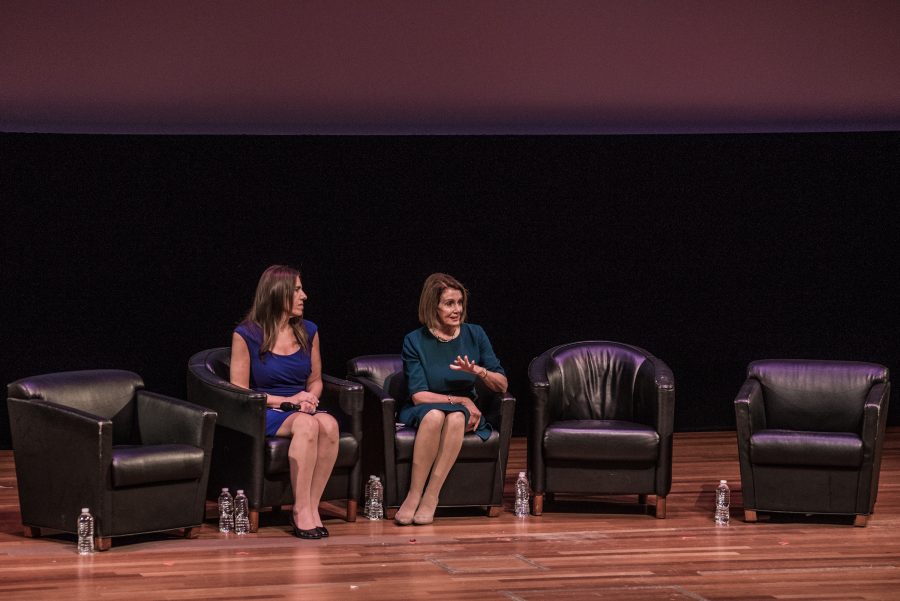On Monday evening, California Congresswoman Nancy Pelosi was among prominent women in a lineup to speak at the first NYU Skirball Talks event of the year. Among other topics, Pelosi — who once served as the first ever female speaker of the United States House of Representatives — discussed women’s empowerment in politics before an audience of NYU students and faculty.
The event kicked off with opening remarks from Pelosi, who discussed feeling significant pushback when she first ran for speaker of the House in 2004.
“It wasn’t a glass ceiling,” Pelosi said, “It was a marble ceiling. It was very hard because there was a pecking order of who will be next, so when people asked me to run, others were saying ‘she’s hasn’t been here long enough.’”
Pelosi spoke about how she hopes her political successes will inspire other women to run for office and feel more empowered in any role they take.
“I want younger women to be running so that they can achieve seniority in their committees much earlier,” Pelosi said. “More importantly, so that younger women, and moms across America, or just working women, can see somebody who shares their experience at the table.”
After Pelosi spoke, TEDWomen Curator Pat Mitchell led the second panel which featured CNN political Commentator Symone Sanders, New York State Senate candidate Alessandra Biaggi, Babson College President Kerry Healey and writer Brittany Packnett. Healey, who once identified as a Republican, discussed how women want to mobilize even if they don’t buy into today’s two party system.
“More and more women like me — who were in the Republican party — are feeling disenfranchised and are feeling pushed out,” Healy said. “They want to embrace the social change that’s happening but they don’t have a home.”
Panelists focused on how important it is for women today to speak up and share their stories with the world. Sanders spoke passionately about how women should not only work hard, but also not be afraid to demand a seat at the table. Similarly, Biaggi focused on how when she first decided to run for State Senate, many people told her it wasn’t her turn.
“As soon as I decided to run, I was told no so many times,” Biaggi said. “I was told ‘no, it’s not your turn,’ which I think is something that women hear a lot. I was not going to wait for someone to anoint me or choose me. I had to step up.”
Other topics during the event included the disenfranchisement of voters, the current political climate in the United States and the role that women play in mobilizing communities. Throughout the talk, the crowd remained enthusiastic, laughing at the sly political jabs the panelists made and enthusiastically clapping after the panelists finished their points. Audience member and first-year Steinhardt student Michael Galati spoke about how the diversity of the panelists was what stood out to him.
“Everyone brought their own experiences and thoughts to the table,” Galati said. “Depending on their age and experience, they brought something different which I thought was important in having this discussion.”
Throughout the talk, panelists encouraged people to register to vote, cut remain engaged and fight for their beliefs. The talk concluded with each of the panelists answering the initial question: what will it take to get more women into positions of power? Packnett feels that instead of demonizing President Donald Trump, female candidates should run on positive messages of their own.
“We need a vision, not a villain,” Packnett said.
Email Mansee Khurana at [email protected].


























































































































































